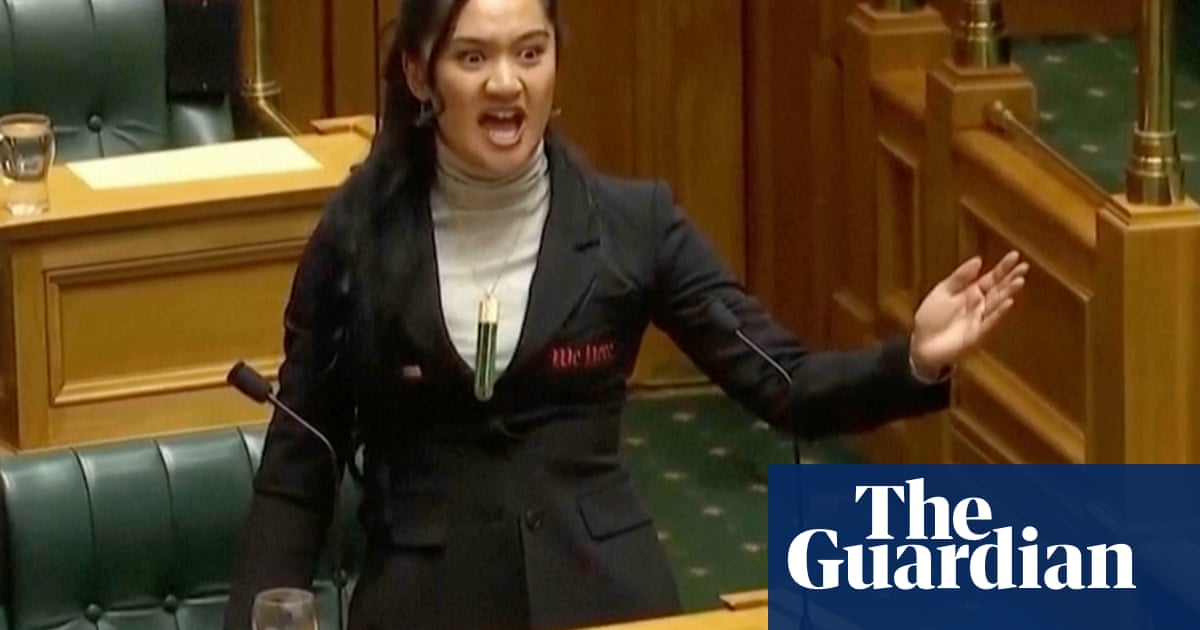New Zealand legislators have voted to enact record parliamentary suspensions for three MPs who performed a Māori haka to protest against a controversial proposed law.
Hana-Rāwhiti Maipi-Clarke received a seven-day ban and the leaders of her political party, Te PātiMāori(the Māori party), Debbie Ngarewa-Packer and Rawiri Waititi, were barred for 21 days. Three days had previously been the longest ban for a New Zealand MP.
The Te Pāti Māori MPsperformed the haka, a chanting dance of challenge, last November to oppose a widely unpopular bill, now defeated, that they said would reverse Indigenous rights.
The protest drew global headlines and ignited months of fraught debate among lawmakers about what the consequences should be and whether New Zealand’s parliament valued Māori culture or felt threatened by it.
A committee of the lawmakers’ peers in April recommended the lengthy punishments in a report that said they were not being punished for the haka itself, but for striding across the floor of the debating chamber towards their opponents while they did it. Maipi-Clarke rejected that on Thursday, citing other instances where legislators had left their seats and approached their opponents without sanction.
It had been expected that the suspensions would be approved, because government parties have more seats in parliament than the opposition and had the necessary votes to affirm them. But the punishment was so severe that the parliament speaker, Gerry Brownlee, in April ordered a free-ranging debate among lawmakers and urged them to attempt to reach a consensus on what repercussions were appropriate.
No such accord was reached on Thursday. During hours of at times emotional speeches, government lawmakers rejected opposition proposals for lighter sanctions.
There were suggestions that opposition lawmakers might extend the debate for days or even longer through filibuster-style speeches, but with the outcome already certain and no one’s mind changed, all lawmakers agreed that the debate should end.
